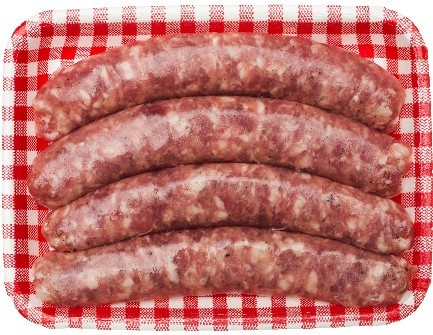Researchers at the University of Cambridge have isolated the livestock-associated strain of methicillin-Resistant Staphylococcus Aureus (LA-MRSA) in sausages and minced pork labelled as being of UK origin for the first time.
The researchers stressed that this did not pose a significant immediate risk to the public, and also said that as they couldn’t rule out cross contamination in the processing plants that made the products, the LA-MRSA may not even have come from UK-produced pork.
The news comes in the same week that The Guardian revealed the results of tests it had conducted on 100 packs of pork chops, bacon and gammon. From 74 Danish packs, 25 British packs and one Irish pack, eight Danish samples and the Irish sample tested positive, but no LA-MRSA was found in the British samples.
The team of Cambridge researchers, funded primarily by the Medical Research Council, bought and analysed a total of 52 pork pre-packaged fresh meat products, labelled as being of UK farm origin, from supermarkets in five different locations across in England in February.
All of the meat products were frozen at -20C and sent to the Department of Veterinary Medicine at the University of Cambridge for testing. After thawing, researchers disinfected the exterior packaging before removing the meat. They then tested a 10g sample of meat from each packet and screened for MRSA. Two of the pork samples – one from sausages, one from minced pork – tested positive for MRSA; the sausage sample contained two strains of the bacteria.
In collaboration with the Wellcome Trust Sanger Institute, an analysis of the genetic make-up of the bacteria confirmed the presence of antibiotic resistant genes. The analysis showed that the bacteria belonged to a type of MRSA known as LA-MRSA CC398, which has emerged over the last few years in Continental Europe, particularly in pigs and poultry, but is not believed to be widely distributed in the UK.
The researchers stressed that adequate cooking (heating at more than 71C) and hygienic precautions during food preparation should minimise the likelihood of transmission to humans via contaminated pork. However, they argue that the discovery of MRSA in pork identifies a potential way that the bacteria can spread from farms to the wider population.
The researchers say that as the two infected samples contained processed pork (sausages and minced pork), they cannot rule out that the meat packing plants from which the MRSA from this study originated also handle imported meat. If this were the case, it is conceivable that cross-contamination might have occurred between non-UK to UK sourced meat.
Dr Mark Holmes from the Department of Veterinary Medicine at the University of Cambridge said this was the first time that MRSA had been detected in retail meat products in the UK.
“The public shouldn’t be overly worried by this as sensible food precautions and good hygiene should prevent its spread,” he added. “It’s also usually pretty harmless and only causes health problems if it infects someone in poor health or gets into a wound.
“However, this does suggest that MRSA is established in our pig farms and provides a possible route of transmission from livestock, through those in direct contact with pigs, into the wider population.”




